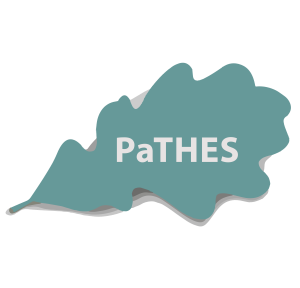1. Pathes
ABOUT PaTHES
The Society will play an important role in the joint international endeavour of developing and strengthening the discussions about the purpose and role of the university as an institution. It aims to be central to the formation of an initiative to establish a lasting joint international academic venture into the Philosophy and Theory of Higher Education. We encourage a multi-generational membership including PhD students, and newer and experienced researchers and scholars.
Drawing on recent notions such as critical thinking, creativity, ethics and social conscience, the society brings together academics whose concern is with the role of the university in and for society.
Neoliberalism and the audit culture have threatened to reduce the purpose of the university as an institution in the 21st century, putting the university into a legitimation crisis. Given that the future is unpredictable and that the world is connected in ways that were unimaginable just two decades ago, we pose central questions such as
- how can the university as an institution and the academics who work in it help to ensure that students are nurtured and adequately prepared for an active role as citizens in a world in which societal, environmental and cultural challenges are shared?
- How is knowledge to be understood in the context of the contemporary university? And how might the university’s responsibilities towards society be construed, not least for a world that is yet to come?
- These reflections concern questioning the university itself. What does it mean to be a university today and in the future? Does the university’s own being call for particular actions and different modes of thinking?
With these questions and others, we suggest that the time maybe right to re-think what ‘being’ the university means.
2. CDDIT
ABOUT CDDIT
The Centre for the Development of Academic Teaching and Tutoring of the University of Gdańsk is a university-wide, cross-faculty organizational unit established in order to broadly develop a high educational culture and create solutions for managing the education processes at the level of the entire university.
The organizational structure of the Centre includes The Centre’s Team of Experts – composed of the Director of the Centre, dr Ewa Szymczak, the Deputy Director of the Centre dr Beata Karpińska-Musiał, both appointed by the Rector of the University of Gdańsk, and Experts appointed by the Director of CDDiT: dr Jarosław Jendza, dr hab. Agnieszka Kowalkowska, prof UG., dr Grzegorz Grzegorczyk and dr Wojciech Glac, prof UG. Two administrative specialists support the Team’s work: Monika Bębenek and Anna Osińska. The Center cooperates also with the Office for the Quality Assurance in Education – composed of two administrative experts.
The long-term vision of the Centre’s Team of Experts is the development of the curriculum, coordination and realization of internal, professional trainings in didactic innovations and academic tutoring for teachers of the University of Gdańsk and external stakeholders. In addition, the Center cares for the implementation of evaluative, diagnostic and basic middle-range research in the field of pedagogy and academic teaching, as well as the publication and popularization of best educational practices at the level of higher education ( e.g. in the form of a newly announced online Journal “Horizons of the Academic Education”). The long-term goal is to develop certification and accreditation paths in the areas of academic tutoring for interested external entities.
3. European Solidarity Centre
ABOUT European Solidarity Centre
Education
Due to our attractive space in the ECS new facilities at Solidarity Square 1 in Gdańsk – the permanent exhibition dedicated to Solidarity and the changes it caused in Central and Eastern Europe, two educational rooms, two seminar rooms, one room for children, the auditorium, the library, and the winter garden – in the 2018/2019 school year we were visited by 11,136 pupils.
We trust that school principals and teachers can find a friendly space at the ECS that will allow them to extend the knowledge and shape civic attitudes of their pupils. We invite pupils from all teaching levels and all types of classes, also integration ones. We offer history and civic workshops, conferences, national and local projects. Subjects and forms of our activities are adjusted to the needs of the group, as well as individual capabilities of the children.
Our offer complements the teaching curriculum, as it is the ECS mission to spread the knowledge of Solidarity movement, the peaceful revolution that changed the face of whole Central and Eastern Europe, and to shape conscious and mature civic attitudes. We believe that we can still draw social energy from the experience of August 1980 today as well.
4. Faculty of Social Sciences University of Gdańsk
ABOUT Faculty of Social Sciences University of Gdańsk
The history of social sciences in Gdańsk dates back to the 1940s, when pedagogy and psychology classes for future teachers were held at the colleges that were the predecessors of the University of Gdańsk. Over the years, new fields of study and organisational units have been created related to the scientific disciplines: pedagogy, psychology, philosophy, sociology and political sciences. They were present in the structure of both the Pedagogical University (transformed from the State Pedagogical University in 1952) and the University of Gdańsk established in 1970. For 20 years, disciplines in the field of social sciences have been developed within the Faculty of Humanities of the University of Gdańsk.
The Faculty of Social Sciences as a basic organisational unit began to operate on 1st December 1990, on the basis of Ordinance No. 5/R/90 of the Rector of the University of Gdańsk of 24th January 1990 (with future amendments). Since 2009, it has been based at 4 Bażyński St.
Currently, the faculty consists of 6 institutes:
– Institute of Philosophy
– Institute of Media, Journalism and Social Communication
– Institute of Pedagogy
– Institute of Psychology
– Institute of Political Science
– Institute of Sociology





